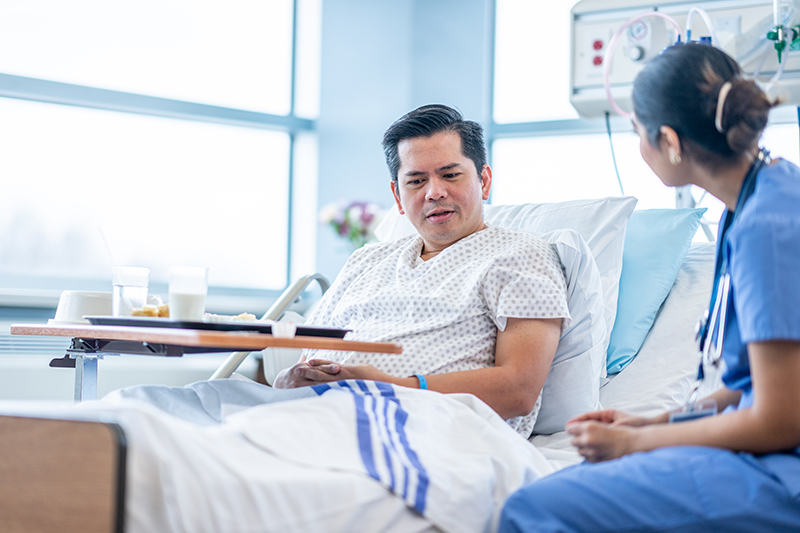The opioid crisis has pushed the field of medicine to reduce the use of the powerful painkillers leaving many patients and physicians searching for alternative ways to address pain.
“The appetite to offer something beyond opioid pain killers after surgery is growing,” said Patrick Doherty, MD, chief of Neurosurgery at Lawrence + Memorial Hospital, and assistant professor of Clinical Neurosurgery, Yale School of Medicine. The big issues we see with opioids after spine surgery, outside of addiction, is mental fog, decreased motivation to get up and move around and constipation. These all impact recovery.”
This is why Dr. Doherty and his team formed a multidisciplinary task force to drive implementation of Enhanced Recovery after Surgery (ERAS) protocols for spine surgery throughout Yale New Haven Health’s five hospitals. The team has already begun to see positive trends from this initiative.
Better pain relief
Dr. Doherty shares that the clinical team now offers many pain control options including anti-inflammatories before and during surgery, and local anesthetic blocks after surgery. Many patients are also offered physical therapy hours after surgery.
“We encourage massage, meditation and yoga, because these types of activities enhance recovery,” said Dr. Doherty.
Average length of stay for spine surgery at Lawrence + Memorial Hospital has gone from 2.6 to 1.1 days and return to work has reduced from three to six months to six weeks. Additionally, internal data show that people on ERAS protocol are off opioids after two weeks vs. three months before this protocol began.
Patients are embracing alternative pain methods. “Overall we have gotten very little push back,” said Dr. Doherty. People are excited to try new methods to manage their pain and not have to worry about opioid side effects.”
Asking the right questions
Before undergoing a surgery that will require pain medications, both physicians recommend asking the following before surgery:
- How painful do you expect the procedure to be; and how long should I expect recovery to take?
- Will I have limitations on my activity after the procedure? For how long?
- When can I resume my normal activities and what does that mean for my personal goals?
Drs. Doherty emphasizes that managing pain is a priority, however opioids can only be used for a defined time. Additionally, it's important about being open and honest with your current use of medications and substances, including opioids, marijuana and alcohol. This not only helps your surgeon treat your pain effectively, but also helps to keep you safe.




